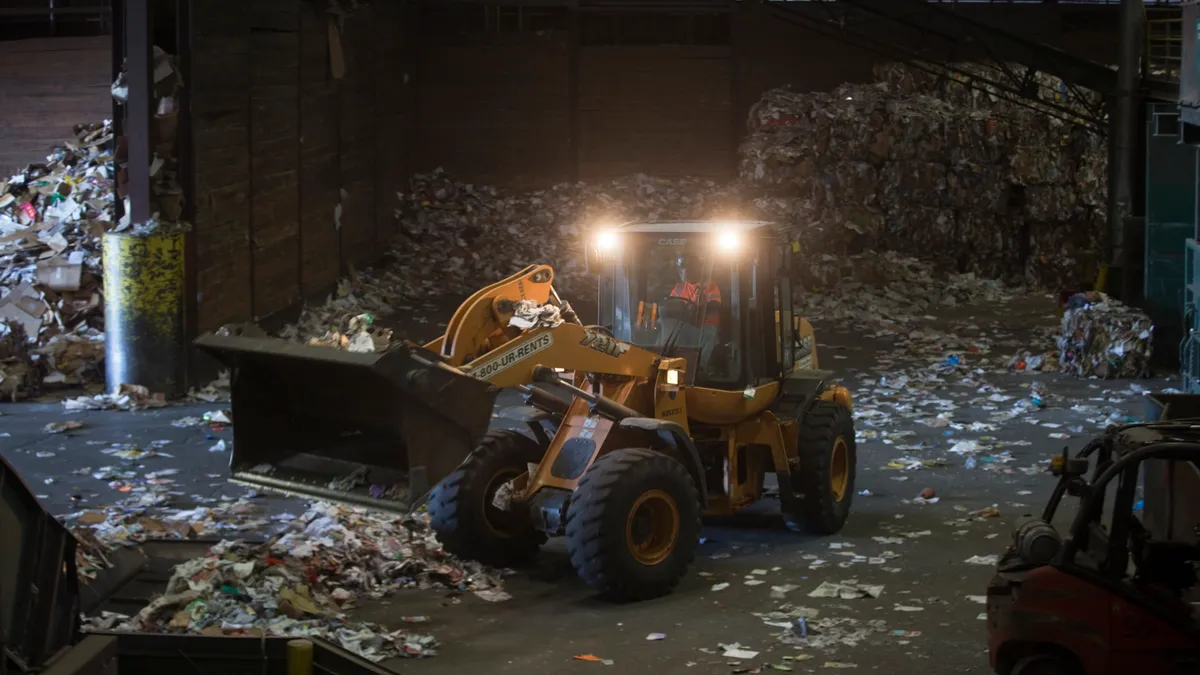Dive Brief:
- The Oregon Department of Environmental Quality’s new EPR rulemaking advisory committee has begun hashing out details of how to implement the state’s extended producer responsibility for packaging program known as the Recycling Modernization Act.
- The rulemaking advisory committee met for the first time on July 20 to begin discussing details of how to implement the EPR program, which passed last year. Most major recycling program changes won’t start until July 2025.
- The committee is one piece of the implementation strategy that also includes numerous periods of stakeholder engagement, public comment, and changes to local collection programs, according to Oregon DEQ.
Dive Insight:
Oregon is in the midst of following a multi-year path to fully implement the law, which calls for most packaging producers to become a member of a producer responsibility organization. Local governments will be able to use producer funding for improvements such as collection services, facility upgrades or programs to reduce contamination.
The law also calls for numerous other recycling changes, including establishing new operating and performance requirements for MRFs, creating a statewide collection list meant to standardize the types of material accepted in recycling programs, and conducting several studies to gauge how accessible recycling programs are across the state.
During its first meeting on July 20, the new rulemaking advisory committee began discussing topics such as how DEQ’s administrative fees will work, how to coordinate the PROs and what the program plans should include, and how to fund and reimburse local governments for recycling-related expenses. Committee members, who represent waste and recycling service providers, local governments, packaging producers and community groups, will continue meeting regularly throughout the rest of 2022 and into early 2023. The next meeting is expected to take place sometime in September.
“We have a lot to do to make sure we meet our statutory deadlines,” said Cheryl Grabham, DEQ’s materials management program manager during the meeting.
Meeting participants also shared timelines for other major milestones written in the law. In 2023, DEQ expects to conduct a collection needs assessment and launch a pilot program for reducing contamination in waste and recycling streams.
Another round of rulemaking will take place in 2023, and studies on recycling equity and access in multifamily housing will also take place, according to DEQ slides shared during the meeting. By 2024, PROs will need to submit an EPR plan to DEQ and begin implementing the plan in 2025.
One task the state has already completed is convening its Truth in Labeling task force meant to “study and evaluate misleading or confusing claims” about whether certain products are recyclable. The task force completed a report of its findings for the state legislature on June 1, calling for legislation addressing confusing labeling on packaging sold in the state, standardizing language on such labels, and coordinating recycling acceptance guidelines with other West Coast states.
Maine was the first state to sign an EPR for packaging bill into law in 2021 and is currently in its own rulemaking process. Oregon passed its law soon after. Since then, California passed both a recycling labeling law and its own EPR bill and Colorado also passed an EPR for packaging bill.











